9/11 Chinatown Documentation Project
This project includes interviews of people that lived or worked in the lower east side during the events on September 11th, 2001. The interviewees reflect on the tragedy and discuss how their lives and the lives of others in the community were affected by it. The interviews help to paint a portrait of how the New York Chinatown we know today was shaped by the events of that morning.
Rights & Usage:
All rights to the interviews, including but not restricted to legal title, copyrights and literary property rights, belong to the Museum of Chinese in America (MOCA). Interview can only be reproduced with permission from the Museum of Chinese in America (MOCA).
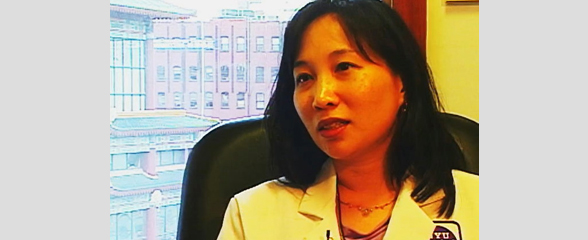
2014.036.001 Oral History Interview with Blanche Leung June 16, 2004
Blanche Leung, M.D., was born on April 16, 1970 in Queens, New York to immigrant parents from Hong Kong and Canton, China. She sits down to recount the immigration story of her parents, from when they left China as young children following the Communist changeover to their time in Hong Kong, Taiwan, Canada and the United States, where they ultimately settled in 1969. Her father was a pharmacist and her mother was a hematology lab manager. She talks extensively about the family pharmacy located on Lafayette and Walker Streets, which served as a focal point for the family. Blanche and her mother frequently went to assist at the pharmacy in addition to spending time in the Chinatown area for errands and extracurricular activities such as ping pong and Chinese School even though they lived in Elmhurst, Queens.
Her childhood relationship with the Chinatown community and the New York Chinese community evolved when she became a medical professional and served as a liaison between Chinese patients and other hospital staff to improve the quality of care. She would later open a practice in Chinatown and describes the interactions she has with her Chinese patients. The interview conversation transitions from talking about Chinese-speaking patients and Chinese language medical resources to her experiences during and after the 9/11 attack. Blanche describes the emotional and physical impact on Chinatown following the terrorist attack in the context of her patient care, diagnosis, and medical requests in addition to the change in the street scene in the aftermath. She concludes the interview with answers to questions regarding Chinatown rebounding from 9/11 and her intentions to continue her medical practice in Chinatown amidst the ever-changing demographics and geography of Chinatown.
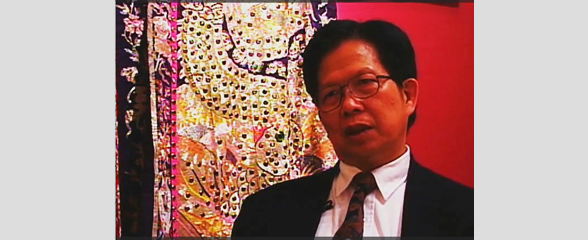
2014.036.002 Oral History Interview with Cambao de Duong November 17, 2003
Cambao de Duong is a Chinese-Vietnamese immigrant born in Saigon, South Vietnam to Chinese parents. Cambao grew up in a multicultural environment and learned to speak Chao Chow, Vietnamese, Cantonese, and Mandarin. He would receive a high level of education in Vietnam, and inspired by one of his principals, became an educator. De Duong would teach at the college level until he received an officer commission in the South Vietnam army. Given his previous service in the South Vietnamese government and army, he was granted refugee status and was quickly approved to relocate to the United States. When Cambao first came to New York City, he decided to work in a non-profit organization, where he assisted Asian immigrants with forms and vocational training. De Duong gradually became heavily involved with social work and community advocacy, becoming co-founder of the Greater New York Vietnamese American Community Association, as well as the Indo-China Sino-American Senior Citizen/Community Center. He makes observations of the changing demographics, crime rate, and sanitation of Chinatown during his decades-long involvement with the local community. De Duong shares his experience in Chinatown during the 9/11 attacks, and notes how similar it was to his experiences in the Vietnam War. He discusses the economic impact of the attacks and goes into detail regarding unemployment and increased requests for social services. Additionally, he observed that while the restaurant businesses in Chinatown mostly recovered two years after the attack, the garment industry will likely not recover.
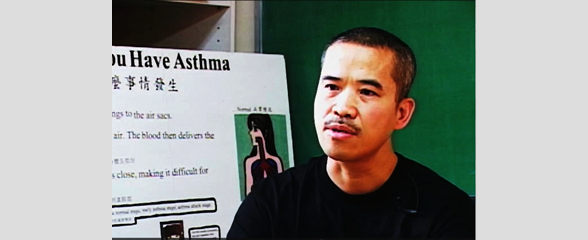
2014.036.003 Oral History Interview with Chris Chan May 24, 2004
Chris Chan is a Chinese immigrant who works for the Chinese Progressive Association (CPA). Born in China, Chris moved to Macau at two years of age following the Communist takeover of China. During his young adult years, he worked as a construction laborer in Hong Kong during the 1970s and 80s construction boom before being sponsored by his sister to immigrate to the United States in 1984. Chris describes the various construction and labor jobs he took on in the early years, the differences between New York City, Chinatown, and Hong Kong, and the challenges he faced as he tried to learn the English language. Chris would become active at the CPA in 1989 and would work for them as an employee in 1992. Chris elaborates on his work at the CPA, emphasizing its services to the local community, including but not limited to immigration rights, citizenship exam and procedure guidance, English classes, local environmental issues, and improving overall community health. In 2002, Chris and the CPA surveyed 580 people in the Chinatown area to study the effects of pollution on the local community and its correlation to asthma symptoms. He states that the CPA attempts to raise awareness of air pollution and dispel misconceptions of asthma in the Chinese community living in Chinatown through an emphasis on educating the population using their study. Chris notes that the 9/11 attack compounded the air quality issues but there are many pre-existing factors that needed addressing to improve quality of life. The discussion following his description of the CPA survey includes their plans to utilize the survey data to continue to educate the populace and to convince other organizations to assist in improving air quality in the Chinatown area.
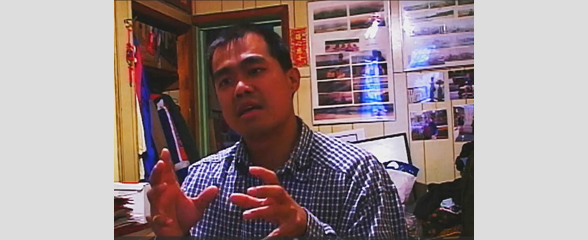
2014.036.004 Oral History Interview with Jami Gong April 26, 2004
Jami (Jameson) Gong is a Chinese American comedian and local Chinatown resident. Born August 23, 1969 in New York City, Jami is the son of immigrant parents from Hong Kong and Southern China. His parents immigrated to the United States in 1967 with a desire for better opportunities and a better life for their children. He reminisces about his time growing up and living in Chinatown, the pollution problem, the changing demographics over time, and the education he and his siblings received. Jami continues on to talk about his time at Syracuse University and his eye opening experience as a college student meeting people from all over the world and being more independent living outside of Chinatown. Jami describes his early experiences doing standup during his time at Syracuse University and how it made him realize that comedy was a career path for him to consider. Jami would continue to do comedy on-and-off while working jobs in New York City until he came to a realization that he could do comedy in Chinatown as a way to revitalize the local economy and nightlife following the 9/11 attacks. The success of TakeOut Comedy and his Chinatown tours would be far reaching, with media coverage from international news groups giving Chinatown recognition as a result of his efforts. Jami also describes his own 9/11 experience of witnessing the towers fall and capturing photos and videos of that particular day. Following the attacks, he noted the negative impact it had on the Chinatown economy and worked to bring back tourism into the Chinatown NYC area through his work as a local tour guide and TakeOut Comedy events. His involvement in Chinatown led him to civil rights activism, leading the local OCA chapter to advocate for equal rights for Chinese Americans. He concludes the interview with his dreams of uniting the world through comedy and what he hopes to achieve in the near future.
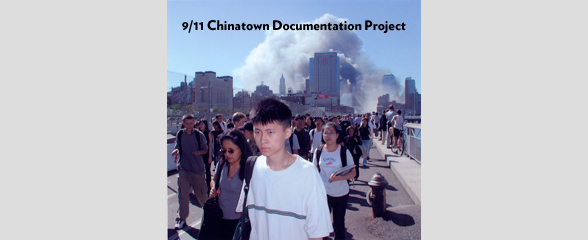
2014.036.005 Oral History Interview with Henry Ye March 11, 2004
Henry Ye of True Light Church is the Director of Immigrant Services at New Life Center, a Lutheran social service organization started shortly after 9/11. Henry was born in Canton in 1979 and moved from China in 1982 to live in Panama for a period with his sister and her family. Henry would eventually move to New York City to attend Lower East Side Preparatory High School and CUNY City College to become a psychologist. He began his career as a social worker with the Chinatown YMCA and a case planner who assisted families in trouble with Administration for Children’s Services (ACS). Henry discusses the nuances of child discipline in Chinese culture and how it is in opposition to United States laws and his role in acting as a trainer and mediator between the ACS and parents. Henry then turns to the demographic change in Chinatown from a Taishanese/Cantonese population to a Fujianese population and discusses the tensions between the two communities arising from the difference in language and economic situations. He describes his work with the Fujianese community and the challenges they face as a recent immigration community. These include debt, undocumented immigration, and fear, ignorance, or mistrust of government-funded services. Henry notes that this issue is also compounded by the lack of cooperation between the different Chinese-speaking groups and advocates for unity among all Chinese communities to leverage themselves politically for change and the betterment of Chinatown.
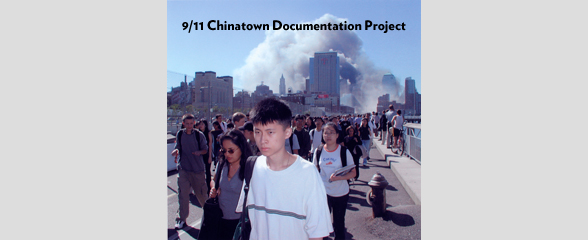
2014.036.006 Oral History Interview with Jeanie Chin May 5, 2004
Jeanie Chin has been a resident of Park Row for over twenty years. Her parents were from Toisan, China. Her mother was the main caretaker and a garment factory worker in Chinatown, while her father is a World War 2 veteran who returned to work as laundry worker, restaurant owner and landowner. Jeanie recalls her childhood living in the Bronx and spending time in Chinatown during the sixties and seventies and describes Chinatown as smaller and populated mainly by people from Toisan and Canton, China. She noted that there was conflict in Chinatown between pro-Mainland Chinese and Taiwanese following the Communist takeover a few decades ago. Jeanie also describes some of the major civil rights movements that she participated in and witnessed in Chinatown, including garment worker strikes organized by the International Ladies Garment Workers Union (ILGWU), the anti-war movement, protests against police brutality, and the tackling of work discrimination in organizations such as Asian Americans for Equality (AAFE). As a long time Park Row resident, Jeanie was also involved in activism following the 9/11 attacks, most specifically around Police parking and lane closures. Jeanie attributed closures and the failing of local businesses to such police actions. Jeanie and the Civic Center Residents Coalition became involved in filing lawsuits against the city regarding the aforementioned issue and raising a voice against such abuse. Jeanie noted that, on a positive note, as a result of the anger and frustration in Chinatown, many organizations that did not communicate prior to 9/11 were brought together to deal with ongoing issues affecting the community.
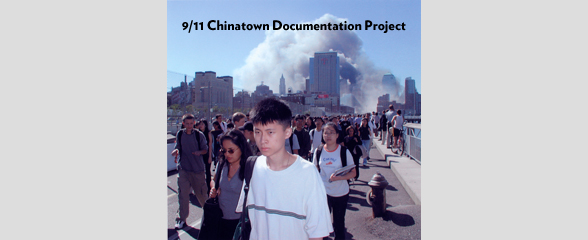
2014.036.007 Oral History Interview with Jeannie Lee Jackson July 13, 2004
Jeannie Lee Jackson is a Chinese American and native New Yorker. She recounts the origins of her seemingly unusual surname for her ethnicity. She recalls her childhood in Brooklyn, growing up as the only Chinese person in her school, working in the family laundry business, and the role Manhattan Chinatown played in her life. As a former member of the Ging Hawk Club, she remembers the social activities she engaged in and how it led to her serendipitous meeting of her husband. Jeannie chronicles raising her children whilst moving to various neighborhoods throughout the city and the change in demographics, affluence, and challenges to the economy. She details effects of crime due to gang activities during the 1970s. She describes starting the Chinese American Lioness Club and how the service organization improved the social welfare, public safety, and health care amongst senior citizens. She recalls the momentous events of September 11th and its impact on the city but specifically Manhattan Chinatown. She describes the confusion, fear, and how the neighborhood came together in its aftermath.
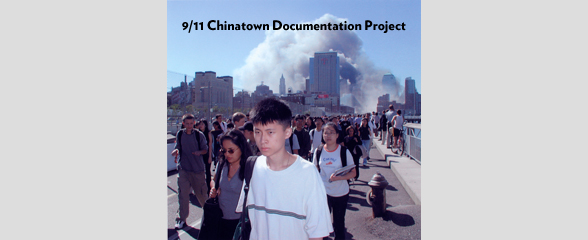
2014.036.008 Oral History Interview with Joseph Chu, April 26, 2004
Joseph Wah Chu is a Chinese immigrant from Toishan County, Guangdong Province, China born in 1933. He grew up in Guangzhou and Hong Kong before eventually moving to the United States in 1965. In the United States, he worked in different cities such as San Francisco, Chicago, and New York City as a waiter and office worker. Joseph would eventually settle in New York City’s Chinatown, citing better job opportunities and existing friendships in NYC. In 1978, Joseph started working at the New York Chinatown Citizen Center, where he assisted senior citizens with applications for government benefits such as food stamps, Medicaid, and senior housing. He recalls the changes over time in Chinatown, from lowering crime to increasing difficulty finding housing for seniors. During 9/11, Joseph was taking a group of seniors out on a field trip. He recalls the transportation shutdown that made his group go to New Jersey to double get back to New York. He describes the reaction and also the impact of the attacks on the senior population. Joseph also talks about government assistance provided following the 9/11 attacks, which ranged from rent/business assistance to free air purifiers and air conditioners. The interview then turns to a discussion about Chinatown’s economic recovery and the changing senior demographics in Chinatown and concludes with a mention of ongoing issues related to housing.
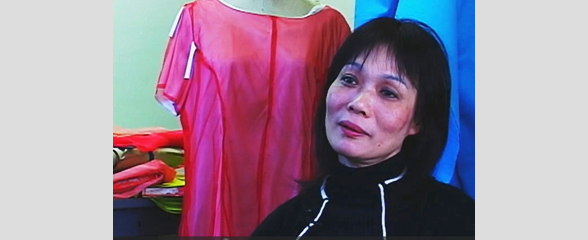
2014.036.009 Oral History Interview with Angela Ng, January 20, 2004
Angela Ng immigrated to the United States in 1970 from Hong Kong and worked as a unionized garment worker for over 25 years. In the interview, she describes her work and experience as a garment worker, and talks about the changes happening in the garment industry. She also discusses union benefits, work conditions, family life for workers, pay, and job availability. On September 11th, 2001, Angela was working at the garment factory when she noticed a plane fly too low overhead and heard an explosion nearby. She recalls scrambling to reach out to family members and taking hours to get home due to the transportation shutdown. After the attacks, Angela describes the decline in work in the garment factory, loss of certain worker benefits, reduction of hours, and the change in workplace dynamics, specifically the decrease in worker leverage over factory owners as a result of a lack of garment orders.
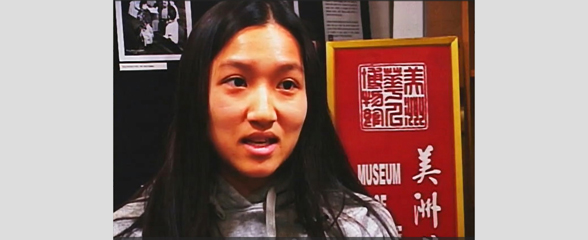
2014.036.010 Oral History Interview with Karen, January 27, 2004
Karen was a college student living in Chinatown with her mother, a unionized garment worker at the time of the September 11th attacks. In the interview, Karen begins by describing her family and childhood experiences living with just her mother in Chinatown after her parents divorced in 1984. She reminisces about her school life and trips back to Hong Kong as an American Born Chinese and shares her thoughts about her cultural identity and her relationship with her mother. During the September 11th attacks, Karen was enrolled in Oberlin College in Ohio and witnessed the attack on television. She recalls trying to contact her mother to check if she was okay. Karen then describes her mother’s situation following the 9/11 attacks and how they were able to benefit from government relief that enabled them to obtain financial aid, vocational training, and equipment such as air purifiers. Karen also describes the living conditions of Chinatown and discusses the issues within Chinatown and how they are often attributed to the “passiveness” of the Chinese residents. She urges Chinese Americans to advocate for themselves through means such as voting. Karen also emphasizes the need for Chinese Americans to expand their own horizons and worldviews and also unite together to advocate for themselves.